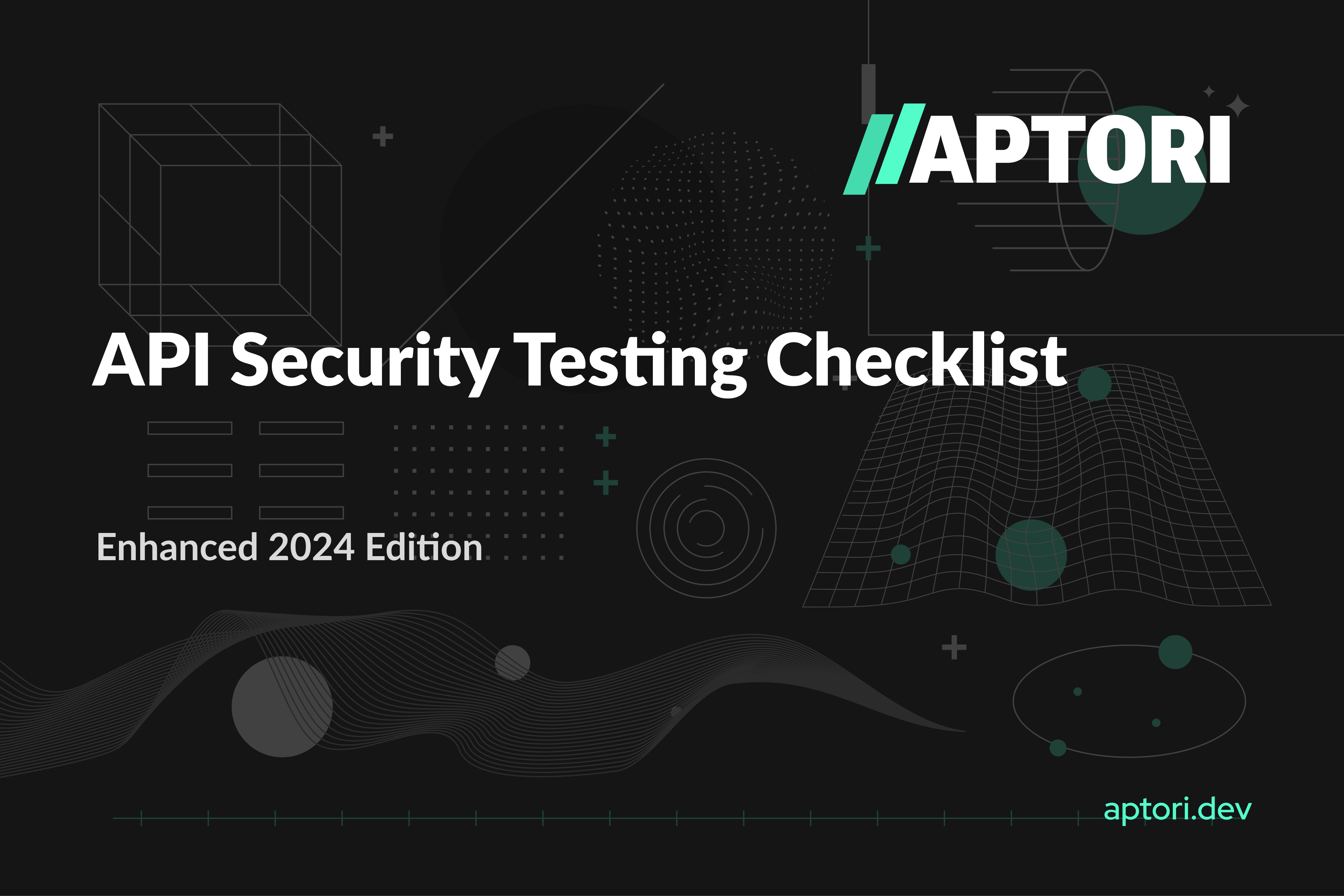APIs are the gateway to a company’s most valuable and sensitive data. The security of applications depends heavily on ensuring these underlying APIs are free from security vulnerabilities. The OWASP API Security Project and the OWASP API Security Top 10 have brought attention to the vulnerabilities that developers need to be aware of and protect against.
Securing APIs raises crucial questions. Firstly, how can we ensure that API updates do not compromise security? Secondly, who is in charge of API security testing and do they possess the necessary tools for this task?
Modern software development teams focus on building secure APIs by leveraging automation and incorporating developer-friendly API security testing tools into their CI/CD pipeline. This article further details API security testing, how it functions, and key considerations when choosing a tool and vendor.
What Is API Security Testing?
API security testing is a practice that involves examining and testing APIs to identify potential security vulnerabilities and weaknesses.
Some testing methods, such as API penetration testing, are more manual and require hands-on effort to probe and exploit vulnerabilities. Other methods, on the other hand, leverage tools and automation to streamline the process.
Different testing methods may uncover different types of vulnerabilities. For instance, issues that manifest only during the API's runtime necessitate tools capable of assessing the application in its running state. On the other hand, certain vulnerabilities can be uncovered through static analysis, utilizing scanners that examine the code base without executing it. Bearing these distinctions in mind, let's explore various types of API security testing tools.
Types of API Security Tests
API security testing can be broadly categorized into three types:
- Dynamic Security Testing: This involves testing the API in its running state to identify vulnerabilities that could be exploited during operation. It simulates attacks on the API to check for runtime security issues.
- Static Security Testing: Unlike dynamic testing, static security testing analyzes the API's source code or binaries to detect security flaws without executing the program. It helps in identifying vulnerabilities early in the development process.
- Software Composition Analysis: This type of testing focuses on identifying security vulnerabilities in third-party components and libraries used within the API. It's crucial since these external elements can introduce unforeseen security risks.
How These Tests Work
- Dynamic Security Testing: involves sending various requests to the API, including malicious payloads, to observe how the system behaves. Tools used in dynamic testing can automatically generate test cases based on the API definition.
- Static Security Testing: This approach utilizes tools that scan the API's codebase to detect patterns and coding practices that could lead to security vulnerabilities.
- Software Composition Analysis: This involves scanning the codebase for known vulnerabilities in open-source libraries and components, often referencing databases like CVE (Common Vulnerabilities and Exposures).
Key Factors In Selecting API Security Testing Tools
The right tool for your team will depend on your specific needs, API architecture, and the nature of the data and processes your APIs handle. When selecting API security testing tools, consider the following criteria, to ensure that the tools effectively meet your security needs:
- Comprehensive Testing Capabilities: The tool should be capable of performing a wide range of tests, including vulnerability scanning, penetration testing, and validation of authentication and authorization mechanisms.
- Integration with Development Workflow: The tool must integrate seamlessly with your existing development and deployment workflows, such as continuous integration/continuous deployment (CI/CD) pipelines, to ensure that security testing is a part of the regular development process.
- Ease of Use and Automation: The tool should be user-friendly and support automation, allowing developers to easily incorporate security testing into their daily tasks without requiring extensive security expertise.
- Importance of Minimizing False Positives: Reducing false positives is critical in API security testing. High rates of false positives can lead to wasted resources and might cause real threats to be overlooked. Select tools with advanced algorithms and learning capabilities to differentiate between vulnerabilities and false positives accurately.
- Real-time Analysis and Reporting: Quick feedback and detailed reports are essential for promptly identifying and addressing security issues. The tool should provide real-time analysis and generate comprehensive, understandable reports.
- Customization: Every API is unique, so the ability to customize tests and configure the tool to suit specific API architectures and use cases is essential.
- Support for Various API Technologies and Standards: Due to their unique structures and usage patterns, Different APIs (REST, SOAP, GraphQL) may require specific scanning techniques. It's crucial to use tools and techniques tailored to the specific technologies used in your API.
- Regulatory Compliance: If your industry is subject to specific regulations (like GDPR, HIPAA, etc.), the tool should help ensure compliance by identifying potential regulatory breaches.
- Vendor Reputation and Support: Consider the vendor's reputation, the quality of customer support, and the community around the tool. Good support and an active community can be invaluable.
- Speed and Efficiency: The tool must execute the tests with speed and efficiency. The rapid performance is key to ensuring that developers are quickly notified of any detected vulnerabilities, allowing immediate attention and resolution.
- Cost-Effectiveness: Evaluate the cost relative to the features offered. The tool should provide good value for money and fit within your budget.
Adopt A Developer-First Approach to API Security
A developer-first approach to API security focuses on integrating security practices within the development process from the very beginning. This strategy is rooted in the principle that developers are not just code creators but also the primary guardians of the application’s security. It involves equipping developers with the tools, knowledge, and resources needed to build security into the API from the ground up.
Arguably, the most crucial factor in choosing the right tool is its ability to effectively reduce the time to resolution. Within the framework of a developer-first approach, the tool should conduct testing with speed and efficiency, providing developers with unambiguous evidence and definitive steps for addressing and resolving any issues identified.
Conclusion
The API Security Checklist emphasizes validation of authentication and authorization mechanisms, and comprehensive testing. By understanding the types of tests available, choosing the right tools, and adopting a developer-first approach, organizations can significantly enhance the security of their APIs, protecting their data and systems from emerging threats in the digital landscape.






